Kabarole Research and Resource Centre-Uganda (KRC-Uganda) is a well-established NGO operating countrywide in different regions of Uganda. Founded in 1996, with a research mission and a long-term commitment to understanding the measures and drivers of poverty and its solutions, KRC-Uganda has …
Our Programs
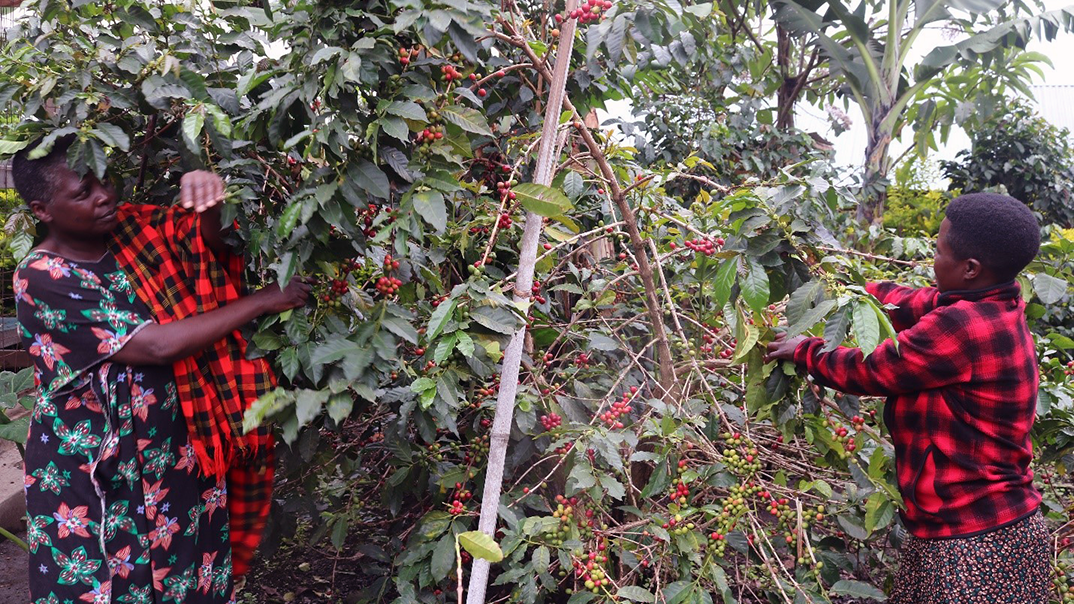
FAGREC Unit
This program plays a vital role in bolstering the efforts of farmers’ organizations by providing comprehensive support across various critical areas of agricultural development.
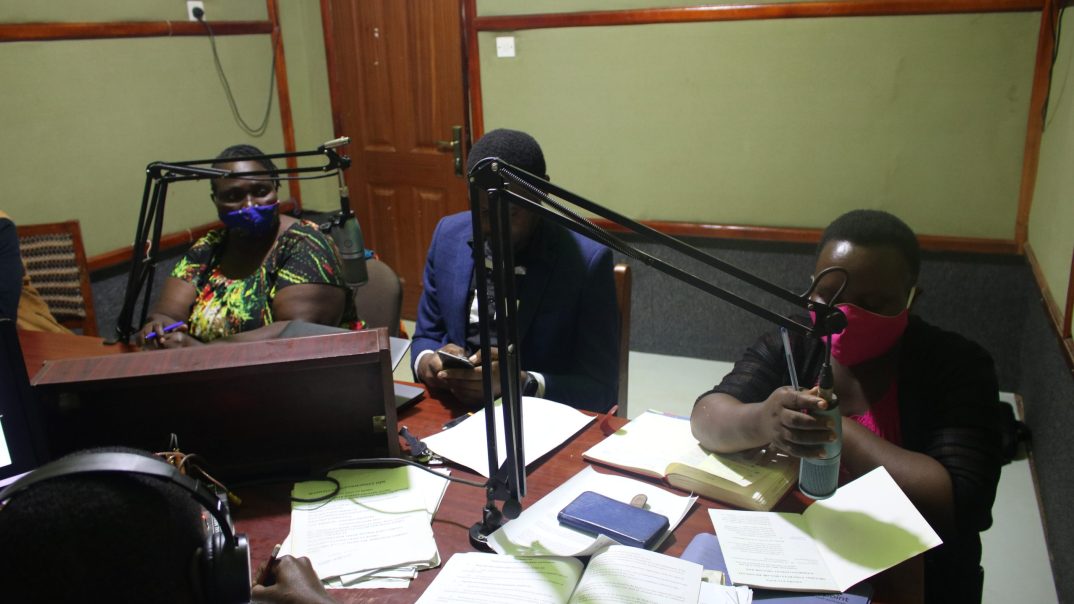
Information Research & Communications
Since its founding in 1996, KRC has stood by the philosophy that meaningful actionable data is the driver of successful and impactful development programs.
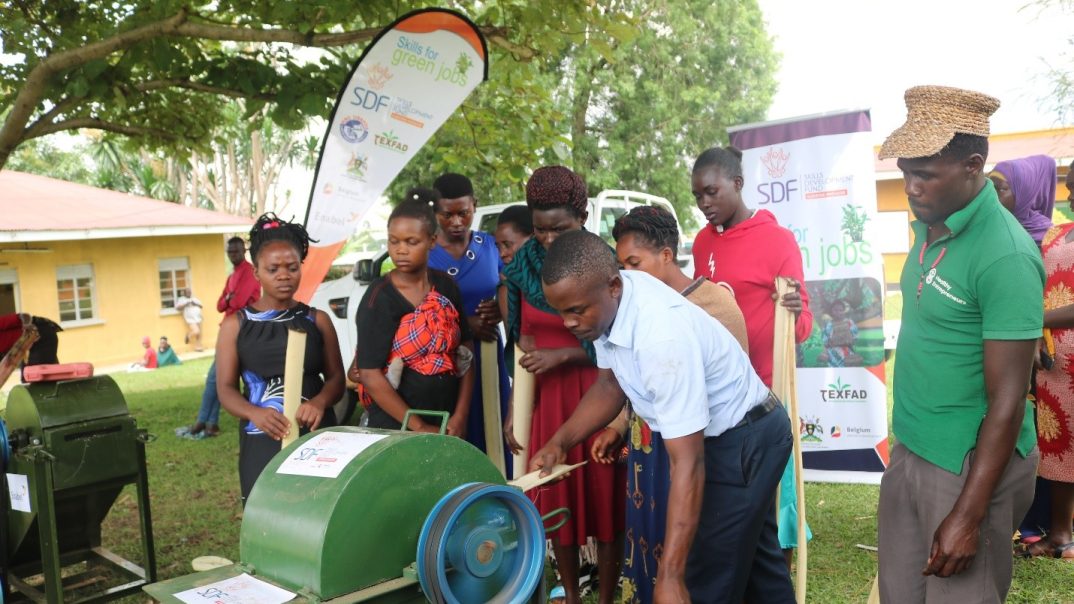
GPH Unit
KRC facilitate spaces for citizens to make their voices heard and exercise their democratic and civic rights. We work with governance structures with the aim of enhancing
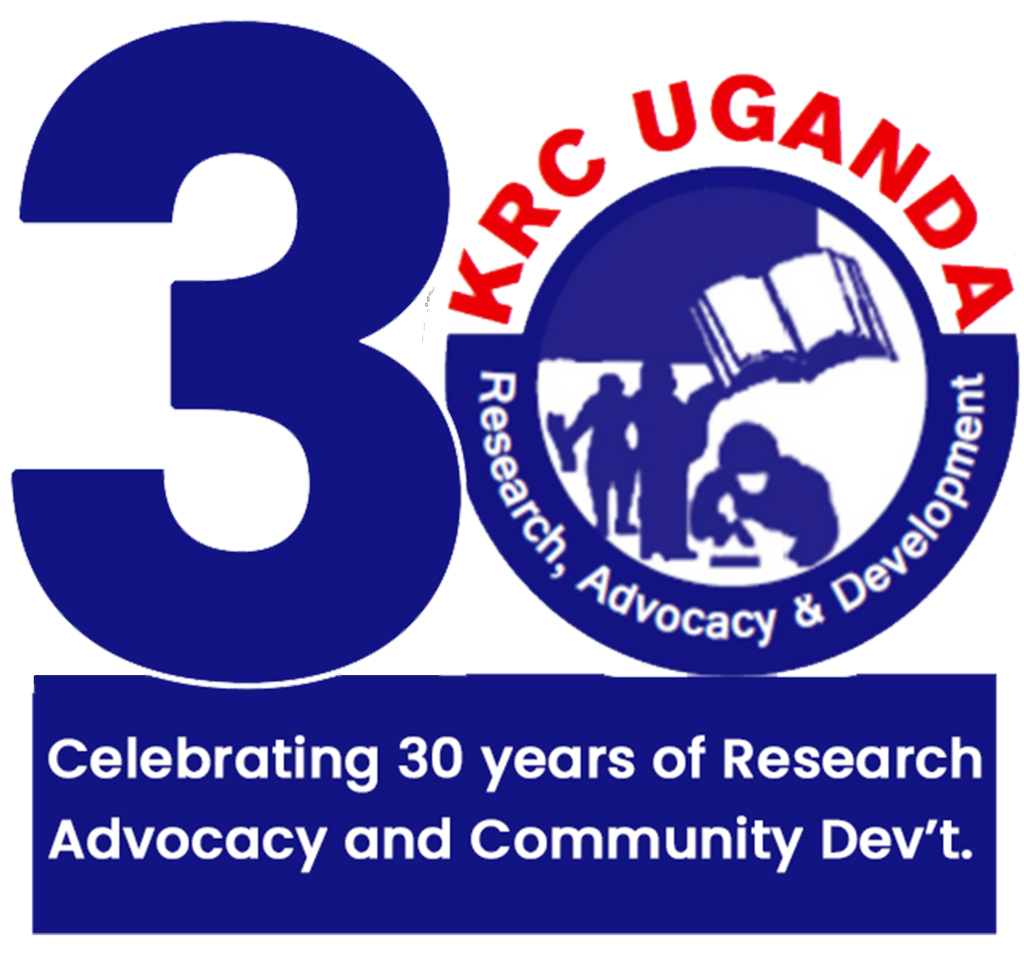
30 Years of Impact
KRC Uganda is celebrating 30 years of transformative community work, advancing research, advocacy, and inclusive development across Uganda.
Since 1996, we’ve empowered citizens, influenced policy, and championed social justice in areas like nutrition, livelihoods, climate resilience, gender equality, and civic education. As we mark this milestone, we reaffirm our commitment to building informed, self-reliant communities.
Thank you for being part of the journey.
…Click to Read More

Job Opportunity: Agricultural Extension Worker – KRC Uganda
Kabarole Research and Resource Centre (KRC-Uganda) is a leading NGO committed to empowering communities through agroecology, research, and inclusive development. In partnership with Broederlijk Delen (BD), KRC is implementing a five-year programme to support family farmers and youth in Kabarole and Bunyangabu districts.
To strengthen this work, KRC is hiring two Agricultural Field Extension Workers to promote sustainable farming practices, environmental conservation, and market access for smallholder farmers. The role involves training, community engagement, and collaboration with local governments—especially focusing on youth and women.
📍 Location: Fort Portal & Bunyangabu
📅 Start Date: 1st March 2026
💼 Salary Scale: UGX 849,923 (A12)
Qualified candidates with a diploma in agriculture or related fields and at least three years’ experience are encouraged to apply.
🕒 Deadline: 6th February 2026 at 11:59 PM
News Articles
Enhance your knowledge about what is happening in the Rwenzori Sub Region
Get informed,
Stay Informed
… click to read more articles
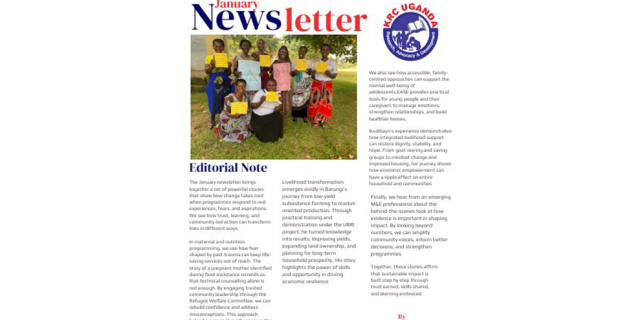
JANUARY NEWSLETTER 2026
The January newsletter brings together a set of powerful stories that show how change takes root when programmes respond to real experiences, fears, and aspirations. We see how trust, learning, and community-led action can transform lives in different ways. In maternal and nutrition programming, we see how fear shaped by past trauma can keep life saving services out of reach. The story of a pregnant mother identified during food assistance reminds us that technical counselling alone is not enough, by engaging trusted community leadership through the Refugee Welfare Committee(RWC), we can rebuild confidence and address misconceptions. This approach helped a pregnant mother access the care she needed, a critical turning point in her pregnancy. Livelihood transformation emerges vividly in Barungi’s journey from low-yield subsistence farming to market oriented production. Through practical training and demonstration under the URRI project, he turned knowledge into results, improving yields, expanding land ownership, and planning for long-term household prosperity. His story highlights the power of skills and opportunity in driving economic resilience. Ikudibayo’s experience demonstrates how integrated livelihood support can restore dignity, stability, and hope. From goat rearing and saving groups to mindset change and improved housing, her journey shows how economic empowerment can have a ripple effect on entire household and communities. We also see how accessible, family centered approaches can support the mental well-being of adolescents, EASE provides practical tools for young people and their caregivers to manage emotions, strengthen relationships, and build healthier homes. Finally, we hear from an emerging M&E professional about the behind-the-scenes look at how evidence is important in shaping impact. By looking beyond numbers, we can amplify community voices, inform better decisions, and strengthen programmes. Together, these stories affirm that sustainable impact is built step by step through trust earned, skills shared, and learning embraced. Click here to read
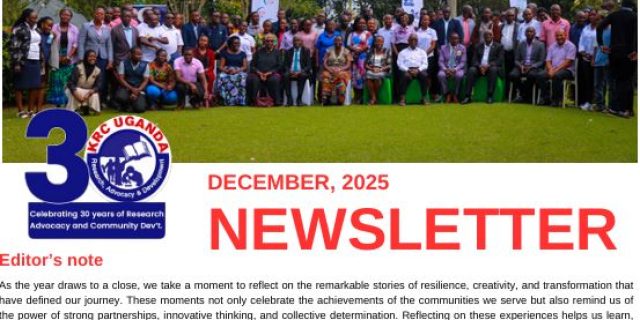
Newsletter December 2025
As the year draws to a close, we take a moment to reflect on the remarkable stories of resilience, creativity, and transformation that have defined our journey. These moments not only celebrate the achievements of the communities we serve but also remind us of the power of strong partnerships, innovative thinking, and collective determination. Reflecting on these experiences helps us learn, appreciate the progress made, and find inspiration to continue empowering communities with renewed purpose. As campaigns intensify, we are reminded that words and actions during this season can either strengthen our communities or divide them. While elections give citizens a voice, they also demand responsibility from leaders, supporters, and institutions alike. Peace is not maintained by authorities alone it is shaped by everyday choices, from how we speak online to how we treat those with different views. Now more than ever, empathy, restraint, and respect must guide our participation in the democratic process. KRC-Uganda’s mid-2025 results show real progress from the BD-funded agroecology project, with farmers producing more, caring better for their land, and improving household wellbeing. Women and youth are playing a stronger role in farming and family decisions, reflecting meaningful change at community level. While food security is improving, nutrition outcomes need closer attention and better measurement. Overall, the project is moving in the right direction, with clear lessons to strengthen and build on what is working. In 2003, KRC introduced the Microfinance Association (MFA) model to help rural farmers and small businesses in the Rwenzori region access financial services. What began as a small pilot has grown into a trusted system, with Kyarusozi MFA standing as proof that the model works. Over time, it has helped women, youth, and vulnerable households save, borrow, invest, and improve their livelihoods. Despite challenges, the MFA model remains a practical and relevant path to financial inclusion in rural communities. The VIBRANT project has brought new hope to vanilla farmers in Ntoroko by uniting them through Vanilla Care Groups, where working in small teams has made it easier to share skills, lower costs, and improve harvests. Beyond better production, these groups have strengthened community ties and made support more practical and within reach. This collective approach is also helping farmers build resilience preparing them not just to endure difficult times, but to recover and move forward. By diversifying crops, saving together, gaining new skills, and accessing better markets, farmers across the Rwenzori region, especially women and youth are taking a more active role, making farming more inclusive and future-ready. These practical steps show that with the right support, smallholder farmers can face shocks with confidence and stability. click here to read
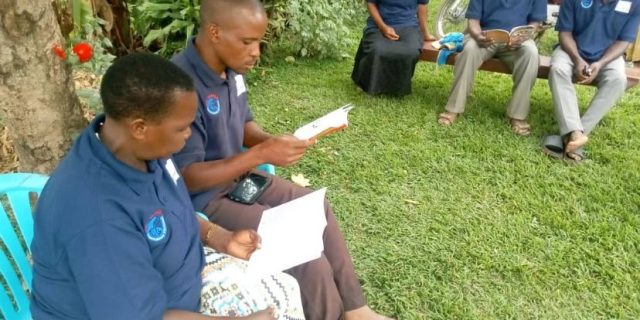
Maintaining Sensitivity in this Election Cycle
As the country approaches a heightened level of political activity, with each political party and candidate intensifying their campaigns, it is crucial for all actors to remain mindful of their conduct and the impact it may have on the peace and stability of our communities. Elections are an essential democratic process, but they also require a high level of responsibility from citizens, leaders, and institutions. Maintaining peace is not only the role of security agencies or electoral bodies it is a shared duty that involves every individual, whether directly or indirectly involved in politics. Vigilance during this period is necessary to ensure that no actor be it a candidate, supporter, or institution engages in actions that could undermine harmony or trigger conflict. Previous electoral cycles have shown that campaign seasons often come with challenges such as human rights violations, voter bribery, intimidation, and the spread of hate speech. Some of these actions are amplified by irresponsible use of media platforms, where misinformation, inflammatory language, and biased reporting escalate tensions. There have also been instances where opposition candidates faced restrictions or oppressive tactics that eroded public trust in the fairness of the process. It’s quite unfortunate that in this election, we are already seeing some of these actions happening. Beyond the political arena, these tensions frequently spill over into homes and communities. Families have experienced conflict arising from disagreements over political choices, with cases of domestic violence linked to disputes about which candidate to support. Communities sometimes become divided along political lines, creating an atmosphere where intolerance thrives and people feel isolated simply because they hold a different opinion. In some cases, support for candidates becomes rooted in tribal or ethnic identity rather than policy priorities or leadership qualities, deepening social divisions. It is essential that citizens approach this election season with maturity, restraint, and respect for differing views. Political competition should never be a justification for violence, discrimination, or the breakdown of relationships. Instead, it should be a platform for constructive dialogue, civic participation, and informed decision-making. Media actors should prioritize responsible reporting and avoid fueling tensions, while leaders should set the tone by promoting unity, tolerance, and respect. A peaceful campaign period requires collective effort. Communities should encourage dialogue and mutual understanding. Institutions must safeguard rights, enforce laws impartially, and ensure that electoral processes remain transparent and credible. Candidates should focus on issues, policies, and solutions rather than divisive rhetoric. Citizens should reject bribery, resist manipulation, and insist on fairness. Ultimately, the goal is to safeguard the stability of the Rwenzori region and the country at large and preserve the social fabric that binds us. Peaceful elections pave the way for meaningful development, strong governance, and a nation where differences are respected. This season provides an opportunity to demonstrate that political diversity can coexist with unity, and that democratic participation can take place without violence or hatred. Compiled by Kihumuro Ainebyona Project Officer GPH
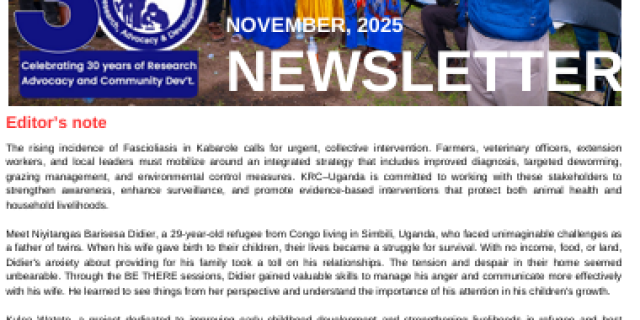
Newsletter November 2025
The rising incidence of Fascioliasis in Kabarole calls for urgent, collective intervention. Farmers, veterinary officers, extension workers, and local leaders must mobilize around an integrated strategy that includes improved diagnosis, targeted deworming, grazing management, and environmental control measures. KRC–Uganda is committed to working with these stakeholders to strengthen awareness, enhance surveillance, and promote evidence-based interventions that protect both animal health and household livelihoods.Meet Niyitangas Barisesa Didier, a 29-year-old refugee from Congo living in Simbili, Uganda, who faced unimaginable challenges as a father of twins. When his wife gave birth to their children, their lives became a struggle for survival. With no income, food, or land, Didier’s anxiety about providing for his family took a toll on his relationships. The tension and despair in their home seemed unbearable. Through the BE THERE sessions, Didier gained valuable skills to manage his anger and communicate more effectivelywith his wife. He learned to see things from her perspective and understand the importance of his attention in his children’s growth. Kulea Watoto, a project dedicated to improving early childhood development and strengthening livelihoods in refugee and host communities, recently held a food and cooking demonstration funded by the Kyegegwa District Local Government. The event showcased practical cooking techniques and nutritious recipes using affordable, locally sourced ingredients. This initiative supports Kulea Watoto’s broader goals of fostering responsive caregiving, enhancing early learning, improving household economic well being, and expanding income-generation opportunities. By equipping families with practical knowledge, Kulea Watoto continues to build resilient, empowered, and self-reliant communities.As parents, we want the best for our children. Positive parenting offers a powerful approach to raising happy, confident, and well adjusted kids. By focusing on empathy, communication, and mutual respect, we can create a safe and supportive environment that fosters healthy development. By embracing positive parenting principles, we can help our children thrive and reach their full potential.Let’s prioritize positive parenting and give our children the gift of a happy, healthy childhoodRefugee settlements often experience immense pressure on already limited services. Water, food, healthcare, education, and livelihood opportunities rarely meet the growing demand. Many refugees must make difficult daily choices whether to save water for drinking or washing, or whether to send a child to school or rely on them to earn a small income. These tough decisions reflect the reality of living in environments where resources cannot match the needs of expanding populations. click here to read newsletter
































